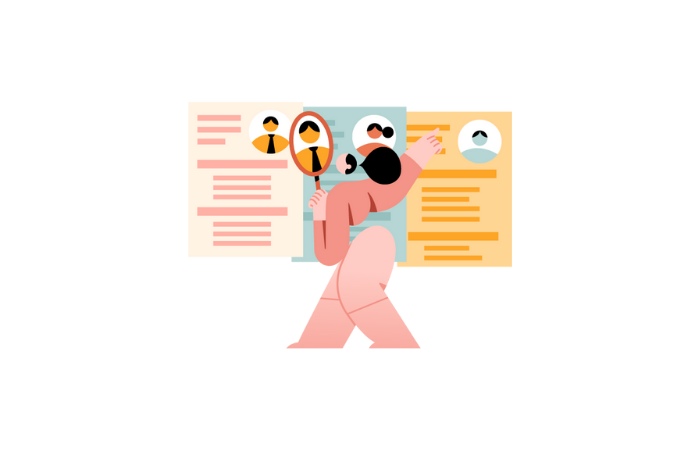
‘Checkbox’ Inclusion Won’t Solve Workplace Racism
Ending “checkbox” inclusion and understanding North America’s long, deep history of racism and genocide are the first steps in building truly equitable workplaces, participants heard during the fourth in Impact Hub Ottawa’s #CrossBorderConvos series on connecting community action to the United Nations Sustainable Development Goals (SDGs).
The Conversation
Session moderator and Impact Hub Ottawa’s Head of Programs and Partnerships Gina Babinec connected the topic to SDG #10: Reduced Inequality. She invited participants to build a “brave space” in which to explore transformative solutions that would (re)centre anti-racism and Indigenous knowledge at work.
To even organize the session, Impact Hub Ottawa had to learn to recentre its own approach to the topic, recalled Babinec and Amanda L. Kennedy, founder of Yotuni Charitable Initiative and Kuwahs^nahawi Enterprises. On an initial planning call, Kennedy asked how the session could begin to reflect 600 years of Indigenous experience with colonization and genocide with just one Indigenous panelist in the (virtual) room. The group quickly agreed to redesign the session as something closer to the style of a traditional sharing circle, with Kennedy as co-facilitator.
“It wasn’t perfect. We got a lot wrong,” Babinec said. But organizers and panelists saw the need to build an approach that better embodied and respected Indigenous knowledge, with everyone’s voices and experiences built into the program.
Kennedy described how hard it is to see white people talking about Indigenous issues without Indigenous people as central participants in the conversation, or after community members’ experience has been dismissed if they don’t have academic degrees.
“If there’s no Indigenous voice there, you’re missing a lot of the truth, you’re missing a lot of the roots.” – Amanda L. Kennedy
Sociologist, writer, and strategist Sloane Kali-Faye talked about the tensions in taking pride in her identity as a Black American woman, noting that many Black entrepreneurs are deeply conflicted about the capitalist context in which they’re building their businesses. “This economy is what it is because of the oppression and sacrifice of our ancestors,” she said. “Capitalism would not be capitalism without slavery in the United States.”
Kali-Faye said workplaces must recognize they operate within a society that was designed to centre imperialist, white supremacist capitalism, and take leadership to act on that understanding. No organization exists in a vacuum, and everyone is shaped by the society in which they’re embedded, she added—so the solution begins with uprooting the system of racism that is already there.
Facilitator and coach Dominique Dennery said she comes from a “long line of freedom fighters” in Haiti, the first country to recognize in the late 18th century that slaves are human. As the daughter of two medical practitioners, her work is about “healing at the emotional level as well as the physical,” she added.
An essential first step in that healing, Dennery said, is to “remove whiteness from the centre of everything”. That means challenging the assumption “that white people are more deserving, smarter, prettier, the norm, the standard, and that the rest of us are considered to be the rest of us,” leading to “othering” and oppression.
Rather than becoming defensive or feeling guilty about the system today’s generations have inherited, she added, it would be a big step if people in the dominant culture realized that white supremacy is simply working as it was designed. “Let’s have a conversation about how we do things differently,” she said, recognizing that today’s institutions “are basically legacies of slavery, genocide, colonialization,” and can only be healed by a shift in power.
Kennedy recalled growing up as a colonized Indigenous child and youth, seeing the barriers and complications growing up in cities and watching her peers struggle with addiction, suicide, and murder. Her own path to understanding meant learning the history of young children ripped away from their families by the residential school system, then gradually becoming an advocate, entrepreneur, and mentor.
“It’s always uncomfortable. It’s never an easy topic. But it’s something that needs to be talked about,” she said. “The whole reason I step into these spaces is to voice my truth, my wisdom, in hopes I can awaken more people.”
Nathan Hall, CEO of Culture Check and Simple Story, cited a survey that found more than 80% of people of colour experiencing racial discrimination in the workplace—and expecting to. He said the constant, small slights are more common and, over time, as damaging as more overt racial slurs that are less common, and easier for institutions to deal with.
“To carry that means that when we walk into a building or click open that Zoom call,” there’s an emotional, physical, and spiritual weight that people of colour must carry, he said. “This is an invisible tax that is continually charged of racialized professionals, and it takes its toll.”
Even as companies begin to step up on inclusion, Hall said the committees are too often run by junior employees, CEOs are too often disengaged, and company structures focus on discovering the business case for being anti-racist. “I see people just going full steam ahead down these nonsensical paths,” he told participants, not realizing that “it needs to be a core part of how the company moves and operates.”
- Read the conversation from our last Cross Border Series on (Re)Centring Anti-Racism and Indigenous Knowledge in Climate Action
- Stay in the loop with our latest events and programs here
- Explore our in-person and virtualco-working